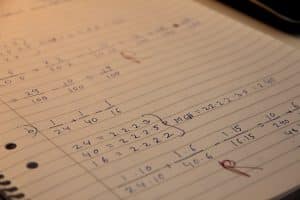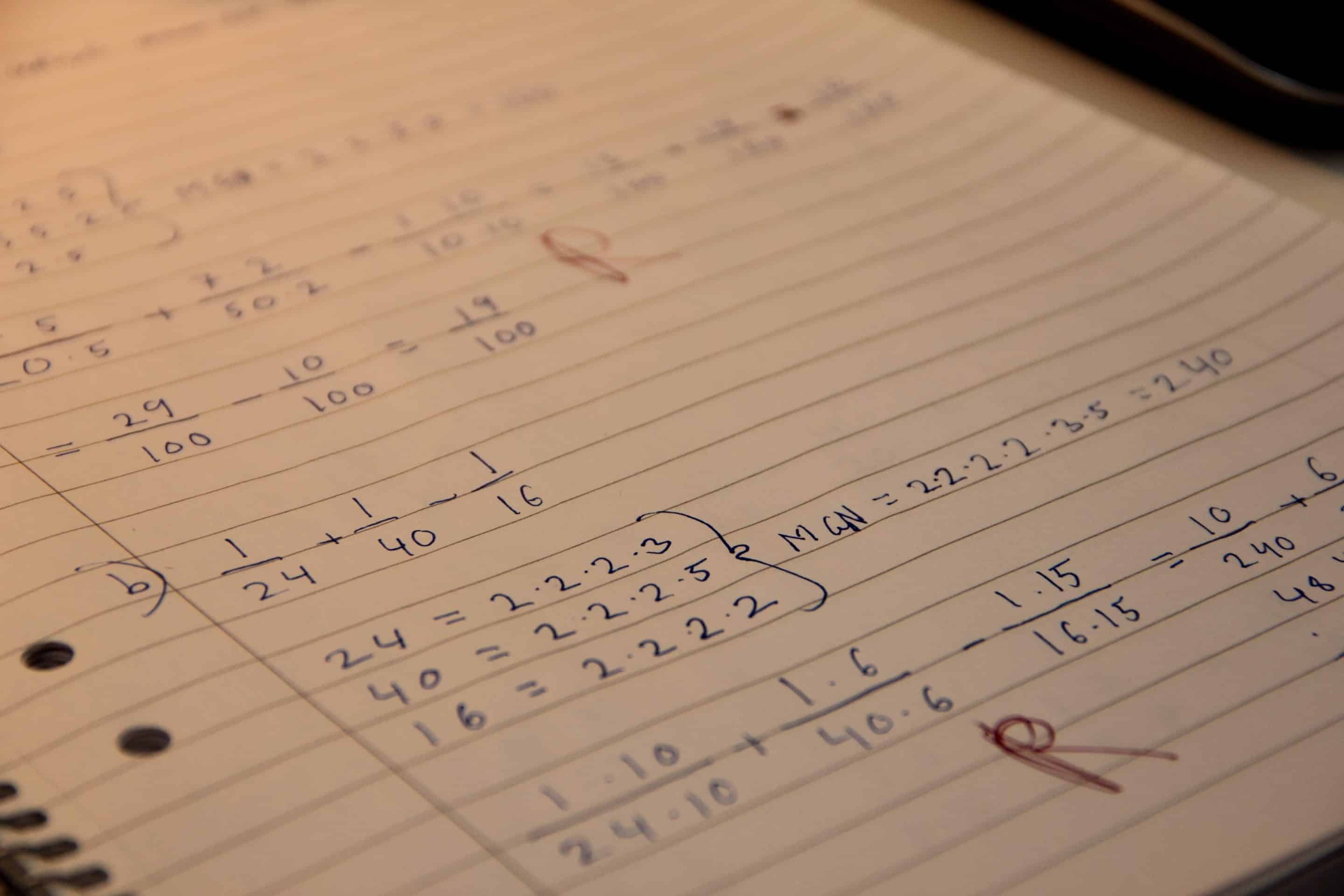“I don’t have a maths brain” is a phrase we hear often. Below, Inspiration Education tutor Alwyn talks about the misconceptions behind this statement and how this belief can be harmful to a student’s learning.

I often get told that I “have a maths brain”.
Usually it happens after I’ve achieved some feat of mental arithmetic in front of my friends, or helped a classmate with a tricky problem, or just told someone what I’ve been up to this week (hint: it was maths).
But here’s the thing: I don’t have a maths brain. No-one has a maths brain. Because there’s no such thing.
This idea, that some people are just inherently better at a subject than other people, is one that many students believe. This belief isn’t only wrong, it’s harmful. It discourages students from trying to improve when the going gets tough. In extreme cases, this belief can stop students from trying at all, because they will use it as an excuse to throw their hands up and leave the problem to someone else.
Let’s think about this in a different way, a physical way. I’m a pretty typical student, I can reliably climb a few flights of stairs without passing out, and have occasionally been spotted running to lectures. If I tried to run a marathon tomorrow, I would quite probably die. That’s because I don’t have a running body. There’s no point in me doing some stretches, then going for a quick jog to the end of the street, maybe around the block tomorrow, try for two laps the day after that, plug in the headphones and go down to the park on Saturday…
Wait.
That actually sounds like a pretty solid plan to me. I mean, I’m not going to be running a marathon tomorrow, but maybe by the end of the year I’ll be fit and ready. It’s a real pity brains can’t get fit in the same way that bodies can.
Except…
They can! It’s thanks to this concept called ‘neuroplasticity’, which means that as students use their brain in different ways for different tasks, their brain will change shape noticeably. A study summarised here looked at the differences between the brains of London-based taxi drivers and the general populace. I’ll sum up the study for those of you who don’t like clicking links: among taxi drivers, the part of the brain that is responsible for navigation was physically larger than in the general populace. By having to practise one specific task over and over again, the basic structure of their brains changed in order to make the task easier. How cool is that?
“The scientists found part of the hippocampus grew larger as the taxi drivers spent more time in the job.”
So that’s a pretty nifty fact, but how can students actually use this? How can students make their brains ‘get bigger’ in ways that will actually help? I asked my sister, who’s the family’s resident biology nerd, and I managed to extract this checklist from the torrent of excited information flooding down the phone.
1. Use it or lose it.
This one’s pretty easy. Students won’t magically get better at maths if they don’t actually do any maths!
2. Use it and improve it.
This one’s also pretty easy (it’s the logical opposite of the first point). If students do some maths, they’ll get better at it. Heck, this neuroscience thing is easy.
3. Specificity.
This one is really cool. Apparently, focusing on one thing, like maths, will allow students to improve in things that are related to it, like physics or chemistry. It’s because the relevant areas of the brain aren’t always separate, so strengthening those neural pathways for one thing can also strengthen them for others.
4. Repetition matters.
You can’t do something once and expect to pick it up instantly. That’s like me expecting to be able to run a marathon tomorrow. Encourage your child to think about their study routine like they think about their exercise routine. Students should train their brains like they train their bodies, and they should think about those exercises in textbook like weight lifting reps.
5. Intensity matters.
Students should push themselves, but not too hard! If they can ace questions on a particular subject, doing more of the same won’t help their brains develop. Students need to have a bit of a challenge before their neurons will kick in and start rewiring themselves. But if they push too hard, they’ll just exhaust themselves with no benefit. Walking round the block won’t help my fitness, but sprinting won’t do much good either, I’d just pass out on the kerb at the first corner.
6. Time matters.
If a student doesn’t understand something from two years ago, all is not lost. While it’s easier to keep building on something you learned recently, even if your child is a bit familiar with that ancient topic, this will make it easier for them to understand now.
7. Salience matters.
This one is crucial. Students have to understand WHY they’re doing something before it can really help them. It’s kind of like having a goal: I’m doing these problems because they’re teaching me how to rearrange equations. I’m running this lap because it’s making me fitter. If students don’t have meaningful goals, they won’t know when to move on to the next thing.
8. Age matters.
Good news for students! Plasticity is easier in younger brains. Parents, don’t panic. Adult brains are still very adaptable, so all the things in this checklist still apply to you too!
9. Transference.
This is similar to point 3, but it’s more specific. Individual things that students pick up in one subject will help them in others, like rearranging equations in maths will help students in chemistry/physics, or writing essays in english will help for history. But watch out…
10. Interference.
It can be hindering. Some things don’t transfer well. In maths, a ‘c’ is just a number you chuck on the end of a graph equation to move the graph up. In physics, ‘c’ is the speed of light. Not the same thing at all. So you have to keep your wits about you.
Whew, you made it! So, the next time your child sits down to do their maths homework and then gives up immediately because they “don’t have a maths brain”, show them the checklist above. They’ll have all the information they need to go out and develop that ‘maths brain’. That’s really all there is to it.
Now excuse me, I have to go and find my running shoes…


